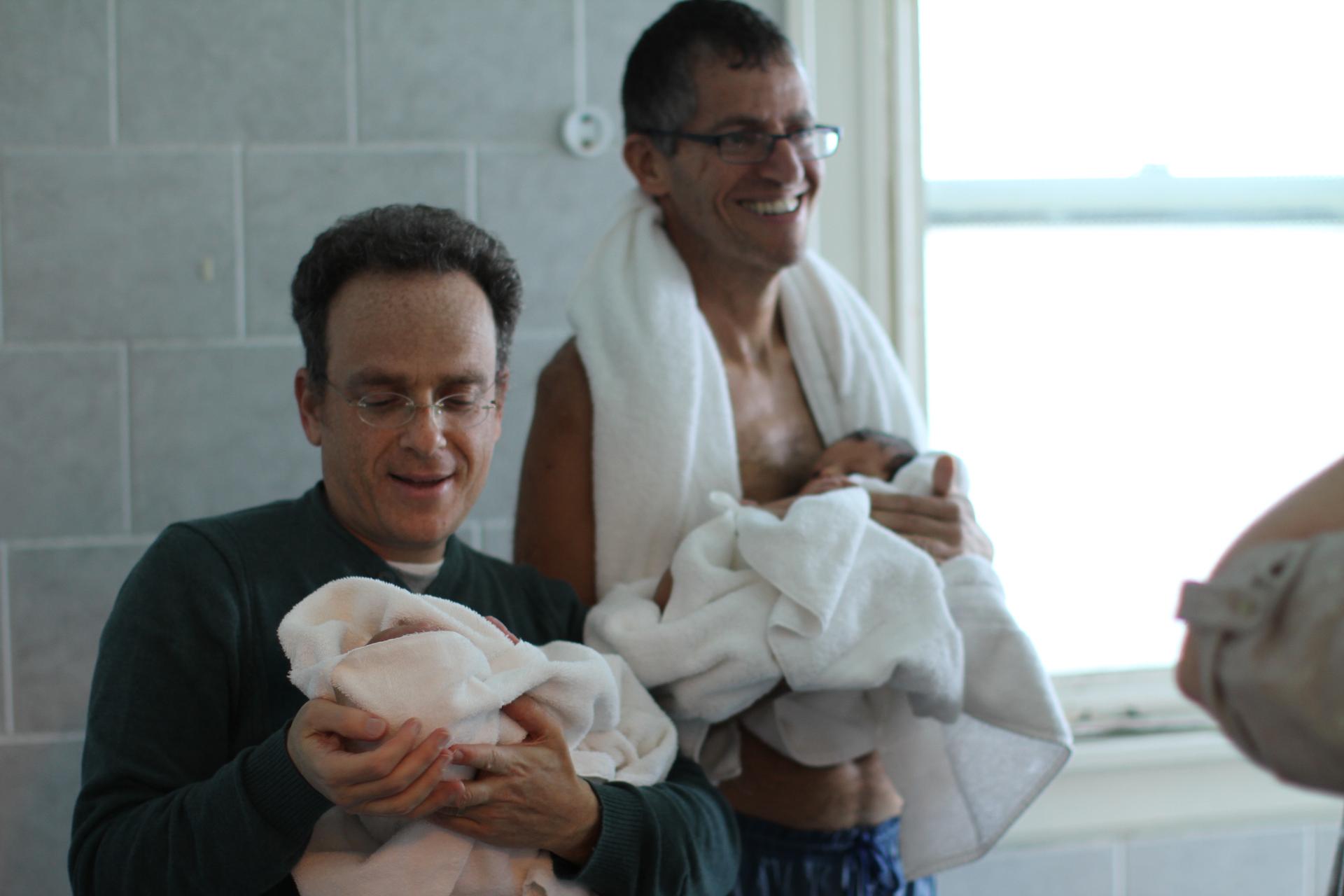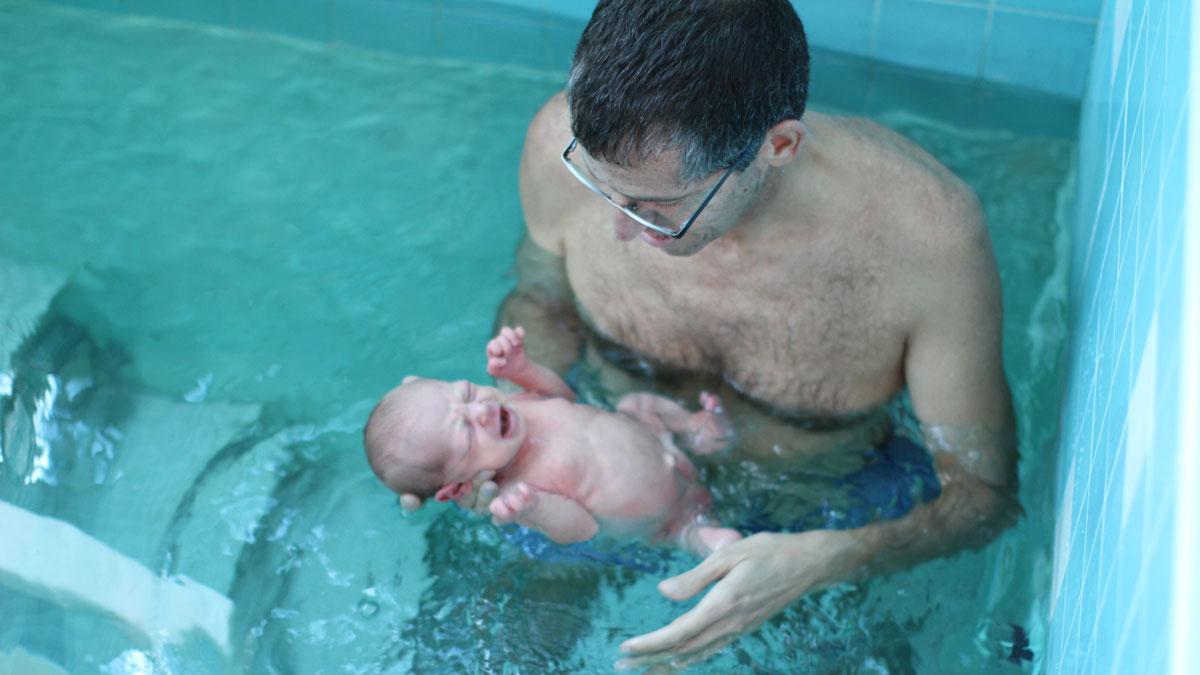Amir Tal holds his newborn baby girl in a conversion ceremony in Portland, Oregon.
In a nondescript house in Southwest Portland, Amir Tal holds his naked newborn baby girl in a tiny but deep indoor pool.
Rabbi Michael Cahana tells him to dip the baby completely underwater for her mikveh — that is, her conversion to Judaism.
Amir and his husband, Ilan, came to Oregon from Israel last month to collect twins from a surrogate mother in the city of Bend.
As Judaism is traditionally passed on by the mother, and neither the surrogate nor the egg donor were Jewish, the babies need to be converted.
“For us it’s just a technicality because we will raise them Jewish regardless of this blessing or the other blessing. But they may get some difficulties in the future if they’re not Jewish, especially if they want to get married. I mean, we just didn’t want them to be any different than they already are,” Ilan said.
Conversion isn’t required for the babies to enter Israel, but being Jewish will make their lives easier. Israel is, after all, a country where religion and the state are intertwined. The mikveh makes the Tal’s twins Jewish enough to be accepted by people in Israel’s reform movement. If the girls want to marry someone from an Orthodox family, they’ll have to go through another process later in life.
Many gay couples opt to do the conversion in Oregon — away from their home and families — because most synagogues in Israel won’t perform the ceremony for them.
Rabbi Cahana, who runs Congregation Beth Israel, says his synagogue has worked with the Israeli government, and their conversions are now recognized.

"The idea of having a ceremony where a gay couple can be separated, where they have felt, up until now, nothing but disdain from the very right-wing religious establishment in Israel, can be a revelation for the couple and for their families, who oftentimes also have very little experience with liberal Judaism,” Cahana said.
Cahana says part of his motivation for doing these conversions is to promote non-orthodox Judaism in Israel.
And he says Oregon is more vibrant for the international links surrogacies are creating.
“People in Oregon are making these connections with Israelis that they never would have. And probably, if they knew anything about Israel, it was about there’s a war; it’s all of these very negative images of Israel. And they’re meeting real people with real lives, in the country,” Cahana said. “They go and they visit and they get their own sense about what’s going on.”
For Ilan, his last three weeks in Oregon have been a whirlwind of getting to know the surrogate mother and her family, filling in paperwork and driving around to get passports and other legal documents.
He’s exhausted, but as dries off the twins to put them back into their onesies, he says it has all been worth it.
“They’re so cute. Despite the hours that you don’t sleep and the general hysteria that something is going to happen to them every second that you don’t see them, they’re fun,” Ilan said.
This story is one of a five-part series by OPB, Oregon's public broadcaster.
